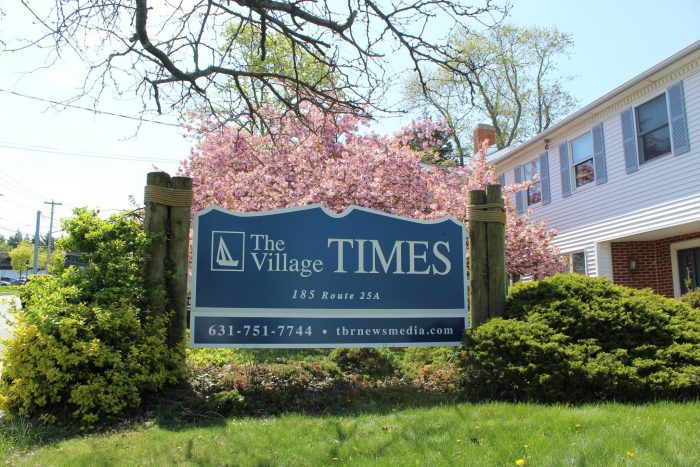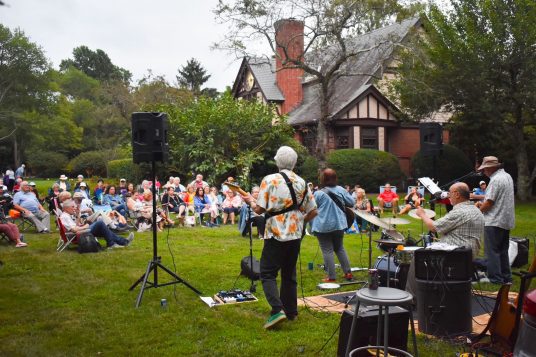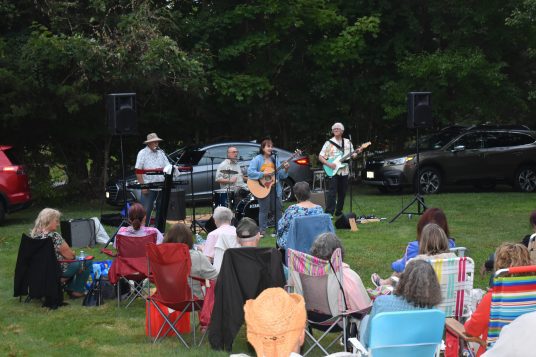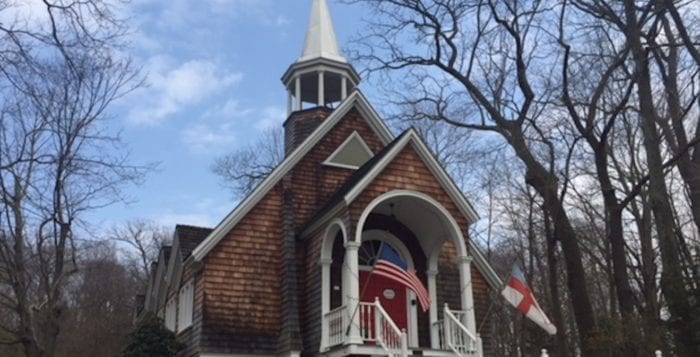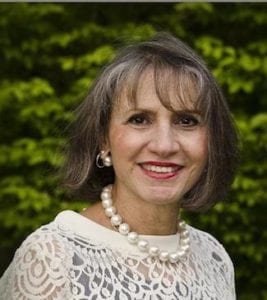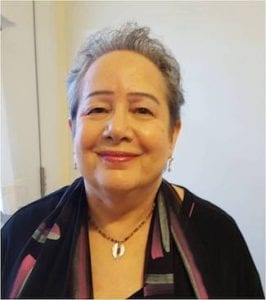EPA and media need accountability
Based on a March, New York Times article, Daniel Dunaief expressed concerns the EPA “is exploring the possibility” of laying off over 1,000 scientists. He urged EPA director, Lee Zeldin (R) to be selective before making any cuts.
Even before Zeldin was sworn in, Biden EPA adviser, Brent Efron, was caught proudly announcing the agency was spending billions of taxpayer dollars before the Trump administration could stop them.
“Get the money out as fast as possible before they come in….it’s like we’re on the Titanic and….throwing gold bars off the edge.”
Where’d the dough go?
“Nonprofits, states, tribes. We gave them the money because it was harder, if it was a government-run program, they could take the money away, if Trump won.”
Apparently, nongovernmental organizations are a great place to stash gold bars because they avoid typical Fed spending “accountability.” So, they can act as weblike pass-throughs to other, politically favored outfits, while making it difficult to track how much money is actually going to “scientists.”
EPA administrator Zeldin found $20 billion from the Greenhouse Gas Reduction Fund, nestled in CitiBank, awaiting distribution.
It was “awarded to just eight entities, that were then responsible for doling out your money to NGOs and others at their discretion, with far less transparency,” Zeldin explained.
He continued, “Of the eight pass-through entities…. various recipients have shown very little qualification to handle a single dollar, let alone several billions of dollars.”
Here’s just one example of the above-mentioned “web.” Power Forward Communities Inc. got $2 billion, despite being set up in 2023 and showing only $100 in revenue for that entire year. That outfit partnered with Rewiring America, where two-time Georgia gubernatorial loser Stacey Abrams (D) works as “corporate counsel.”
As for the New York Times reporting on Zeldin’s EPA, let’s consider the source. The “Gray Lady” cited House Democrats. Recall, the New York Times joined other major media outlets in losing tons of credibility by selectively censoring some stories (including those on COVID), while parroting Dem pols’ deceitful talking points on major, critical issues. The most dangerous of which was assuring us that President Joe Biden (D) was cognitively capable of acting as commander in chief and leader of the free world.
We are a people burdened with $36 trillion dollars in debt, and a lack of faith in what is being reported as “news.” So the public needs to demand accountability from both the EPA and media. Then use common sense and a critical eye to make honest judgments.
Jim Soviero
East Setauket
Conscience Bay Society of Friends hope county officials protect everyone in spirit of the Constitution
Conscience Bay Meeting of the Religious Society of Friends (Quakers) was established in St. James in 1961. Most of us live in western Suffolk County and have deep ties to the area. On March 9, we met in a meeting for worship with attention to business and considered the circumstances currently faced by immigrants and refugees in our country. After prayerful consideration, we approved the following minute:
Conscience Bay Meeting of the Religious Society of Friends is united in the centuries-old Quaker convictions that every person has that of God/Spirit within them, that all are equal in dignity and worth, that all are deserving of compassion and fair treatment. With this understanding of how we can live together in peace, we have a deep concern for the well-being and rights of all. Therefore, we issue this public call for support and protection, without regard to their immigration status, of all immigrants and refugees in our extended community of Suffolk County, New York. We call upon our county officials to advocate and create policies that protect all individuals from unwarranted arrest, detention or deportation.
We ask that our county police remain in compliance with their central mandate to “Serve and Protect.” In fulfilling that vital and honorable role, there is no justification for our county or local police departments to act as surrogates for federal Immigration and Customs Enforcement (ICE) or associated agencies. We commend the ongoing efforts by individuals, organizations and local governments to provide essential services, advocacy and safety for immigrants and refugees.
It is our hope that you will do all that you can to protect the rights of everyone within your jurisdiction and that you will fulfill the duty of every elected official to live up to the letter and spirit of the Constitution of the United States.
Thank you for your attention.
Sincerely,
Carolyn Emerson
Clerk, Conscience Bay Meeting
Disappointing Town Hall
I am in agreement with the March 20 letters of Donna Newman and Robert Marcus regarding the disappointing so-called “Town Hall” meeting by Congressman Nick LaLota [(R—NY1)]. I specifically want to add that LaLota’s claims of asking constituents their opinions was self-serving. To ask whether or not we supported government waste was silly. Everyone objects to waste; but the real question is how much waste is there and is destruction of government agencies an acceptable way to deal with it. LaLota’s questions were only designed to reinforce his own views or rather the views of [President Donald] Trump [(R)], whom he supports in every way.
Respectfully,
Adam Fisher
Port Jefferson Station
Thank you to Three Village Community Trust
I want to thank the Three Village Community Trust and Councilmember Jonathan Kornreich (D-Stony Brook) for their recent recognition of the Setauket Neighborhood House as an important community asset and its continuing commitment to provide a warm and friendly meeting and gathering place for the community.
In 1918, local philanthropists Eversley and Minnie Childs gave the Setauket Neighborhood House to the residents of the Stony Brook and Setauket communities as a needed meeting place. For more than 100 years, the Setauket Neighborhood House and its board of dedicated trustees have provided a unique and treasured asset that has been a place for hosting community and family events in a friendly and welcoming atmosphere.
Thanks to all for recognizing my service as its manager and the importance of the Setauket Neighborhood House as a recognized Three Village community asset.
Maria Nardiello
Manager
Setauket Neighborhood House
Open letter to Congressman Nick LaLota
Prologue: I originally wrote the following letter a week ago. So much has negatively changed in what is happening with Social Security that I found it necessary to add this prologue. Offices have been closed. There is no one to answer the phones or you may have to wait 30 minutes to talk to someone. The Social Security website crashed two or three times last week. If there is an open office near you, the wait time standing in a line can be 4 or 5 hours.
Congressman LaLota (R-NY1), is this what you were elected to support? Do you support all these changes? Do you have anyone in your life that may have to deal with Social Security? I hope you help them.
But now how does someone in your district who may need help get in touch with you?
In the last few weeks it has been reported that the Department of Government Efficiency is now closing some Social Security offices and that phone access will no longer be available. One can only get in touch with the Social Security office online or in person. So, if you are new to Social Security or need to make any changes, you will either have to do it online or go in to an office, if there is one near you.
Congressman LaLota, since you have not objected to any of these cuts, I have to think that you support them. Therefore, anyone who needs help making any change to their Social Security should get in touch with you for help. Perhaps you have not realized that many of the people in your district are senior citizens, many of whom need their Social Security checks to make it through the month. Many of them do not have computers, and, if they do, they do not know how to do many things on the computer. Many of them no longer drive nor do they have someone who can take them to a Social Security office.
I have to ask if you have tried to find out how people in your district feel about all these changes. People who voted for you expected that you were going to make their lives easier, not harder, and by supporting these changes, everyone’s life is a lot harder.
So, Congressman LaLota, how are you going to help these people in your district?
Ernestine Franco
Sound Beach
BESS estimates
In his letter of March 27 George Altemose makes a valid point that solar power on Long Island is too variable to be able to provide 100% of our needs so backup power of some kind is needed. However, his analysis of the number of homes that could be serviced by a 8.75 MW solar facility coupled to a battery facility (battery energy storage system) contrasts with my personal experience.
Using the time period that includes his use of August 2024 (I am billed on a two-month cycle) my two-month total usage was 1,123 kwh or an average of 780 watts contrasted to his home average use of 2,747 watts (both include use of air conditioning). He makes a questionable assumption that the power requirement would double from the average when air conditioning is turned on for 4 hours and used that condition, not the average use, as a basis for need. If our home use was typical, the number of homes that could be covered by BESS is larger than their calculation, not smaller.
Of course, there are many factors that will impact use of power, but one very noticeable change we noticed was the drop in energy usage with our conversion to heat pump air conditioning, which is much more efficient and quieter than other forms and can also provide heat when needed.
Peter Bond
Stony Brook
Fact checking: ‘Reconfiguration is the right decision for 3V schools,’ appeared on March 20th
To my knowledge, not a single member of the Three Village community petitioned for grade restructuring. Restructuring is an administration-driven initiative that was pushed forward through the ‘Strategic Plan Committee’ meetings. Because many parents became concerned that this plan would make start times even worse than the current dismal state, it was primarily these parents who turned up and closely followed the restructuring meetings. Their main concern was that the restructuring, as initially planned, would have moved the 9th grade students to a 7:05am start time from the current 7:40 start time. This is obviously the exact opposite of what most parents wanted.
As of my writing, the proposed budget simply maintains the status quo for the 9th grade student start times. This is appropriate, given that these students are the ones most affected by the restructuring at the secondary level. It is also in alignment with 15 years of recommendations from the community and relevant committees.
The request for later start times is not a new-found concern but a long-standing one rooted in over 30 years of research and backed by leading U.S. medical organizations. Locally, a 2019 petition urging the Three Village school Board and administration to adopt healthier start times obtained 1,700 signatures within days, a remarkable response. Dismissing this long-held goal as a “sudden desire” or “utterly useless” disregards medical evidence and years of parent advocacy.
The claim that teenagers will “fall asleep from boredom” if devices are removed is counterfactual for the many parents who have witnessed their children struggle to meet developmental sleep requirements, despite implementing good sleep hygiene habits.
Barbara Rosati,
Dept. of Physiology
Stony Brook University
To the Board of Education and Administration of the Three Village Central School District
As we near school budget season, and the conversations increase in intensity and severity regarding where our money is allotted for the 2025-2026 school year, here are the top nominees for talking points in Three Village.
1. The upcoming reconfiguration
This is a change, decades in the making, that is being made through due diligence and circumspection for what is best for all Three Village students. Those who continue to dissent and rail against this 21st century change choose to remain ignorant to the negative effects our current model spews on our student population and the positive monetary savings the district will reap. The opportunities that will be offered to our sixth and ninth graders outweigh any and all possible repercussions that may befall them. Imagine a world full of clubs and classes that they would not receive in their current placement and try to ignore the rantings of those who chose to deny the simple fact that our beloved Three Village needs a facelift. Moving on.
2. Start times
Stop the madness! No matter what the supposed science says, a 30-minute change to our start times is an utter waste of over $1million and will not make one bit of difference. If parents are so concerned with their children’s sleep habits, perhaps they should take the devices out of their little darling’s hands and tell them to go to bed. I, and MANY others, are not willing to see class sizes rise and programs disappear so that kids can have an extra 30 minutes on their phones instead of in the classroom. Think about the detriments there before we spend a million dollars of the budget to cover transportation costs rather than having educators in classes. Are we willing to see the possible failure of the budget for this nonsense?
3. Security
Earlier this school year three Village had a fright. A gun got into our high school and the situation was handled smoothly and transparently. However the resounding outcry that followed was even more disturbing. Now we have a call to arm our security guards, despite the fact that extensive research has shown that armed guards have actually induced more violence in schools. I am staunchly against allowing anyone to carry a firearm either in or around our schools as I do not believe, under any circumstances, that this will assist in dissuading someone who wants to commit a violent act on school property. I appreciate the comprehensive work that has been done by Mr. Blaum and his team and I trust that the system they are currently implementing will keep our children safe while in school. Regardless of any former law enforcement experience, school security guards do not need to be armed, particularly if response times to tense situations are not improved.
4. Incidents of hate
Thank you, Dr. Scanlon for acknowledging that Three Village has a problem, although it is extremely disconcerting to know that it has gotten this far. In our district we have had several antisemitic occurrences. We are very lucky that none of them have involved violence. I sincerely hope that the administration and the board are working together to create a plan that will address all of the issues that are on the increase, particularly in the current environment that exists throughout our country. When teaching kindness and compassion, as well as common courtesy and respect, there is no amount too high if it erases the feelings of hatred toward any fellow students.
Let’s get it together three Village and regain our standing in our awesome 2025-2026 middle school model. We have so much to look forward to!
Stefanie Werner
East Setauket
I am ready to work for you as your trustee
I’m excited to share that I’m running for reelection for Port Jefferson village trustee. Over 24 years ago, Kelly and I made the decision to raise our family here in Port Jefferson, and it has truly been the perfect place to call home. Our children, Victoria and Stephen, have grown up here, and we’ve watched this village become an even more wonderful community with every passing year.
It has been a true honor to serve as your trustee for the past two years, and as deputy mayor for the past year. During this time, I’ve had the privilege of working with so many dedicated and talented people – from the team at Village Hall to volunteers who serve on committees like the Conservancy, Parks & Recreation, Tree Committee, Conservation Advisory Council and the Committee for Coastal Erosion. What I’ve come to appreciate is how much stronger we are when we work together to improve our village. I’ve always strived to listen, learn, and ensure that everyone’s voice is heard.
With over 30 years in municipal government, including 18 years as the village clerk/administrator here in Port Jefferson, I’ve gained experience working alongside a wonderful staff, 10 mayors and many trustees. Through countless meetings, challenges and successes, I’ve learned what it takes to help a village prosper, and I’m committed to using that knowledge to make Port Jefferson even better.
There are still important opportunities ahead that we must address, like the stabilization of the bluff at the Port Jefferson Country Club, the future of the Power Plant and managing the growth of apartments. These issues require thoughtful leadership, and I believe my experience, ability to collaborate and passion for our community make me well-suited to help guide Port Jefferson forward.
Two years ago, I promised that I would always be available to listen to your concerns and ideas. I’ve kept that promise with my “Saturday Sit-Down” sessions, where I meet informally with residents to chat about village matters. My personal cell phone number is on my business cards and in my emails, and I encourage you to reach out to me. I’m here to listen, help, and be part of the solutions that make our village the best it can be.
I hope I can count on your support on June 17. Together, we’ll continue to make Port Jefferson the wonderful community that we all cherish.
Bob Juliano
Port Jefferson
WRITE TO US … AND KEEP IT LOCAL We welcome your letters, especially those responding to our local coverage, replying to other letter writers’ comments and speaking mainly to local themes. Letters should be no longer than 400 words and may be edited for length, libel, style, good taste and uncivil language. They will also be published on our website. We do not publish anonymous letters. Please include an address and phone number for confirmation. Email letters to: [email protected] or mail them to TBR News Media, P.O. Box 707, Setauket, NY 11733


